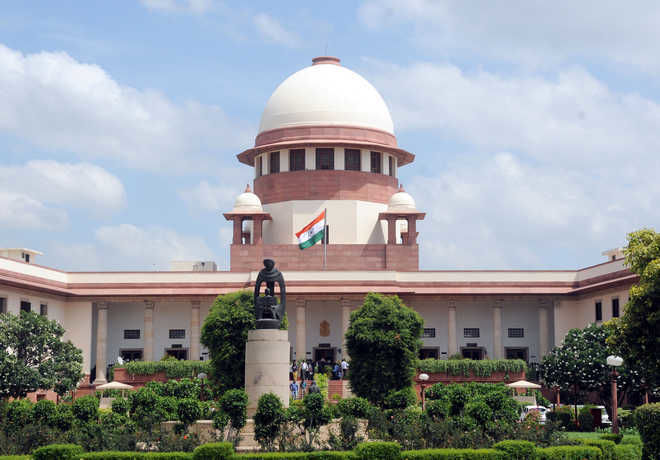Royalty on minerals not tax; states competent to impose taxes on mineral rights, rules Supreme Court
Satya Prakash
New Delhi, July 25
Holding that royalty payable on minerals is not a tax, the Supreme Court on Thursday said states have the legislative competence to impose taxes on mineral rights and mineral-bearing land.
“Royalty is not a tax. Royalty is a contractual consideration paid by the mining lessee to the lessor for enjoyment of mineral rights. The liability to pay royalty arises out of the contractual conditions of the mining lease. The payments made to the Government cannot be deemed to be a tax merely because the statute provides for their recovery as arrears,” a nine-judge Constitution Bench led by CJI DY Chandrachud said.
“The legislative power to tax mineral rights vests with the State legislatures. Parliament does not have legislative competence to tax mineral rights under Entry 54 of List I, it being a general entry. Since the power to tax mineral rights is enumerated in Entry 50 of List II, Parliament cannot use its residuary powers with respect to that subject-matter,” the Bench said in an 8:1 verdict.
“The State legislatures have legislative competence under Article 246 read with Entry 49 of List II to tax lands which comprise of mines and quarries. Mineral-bearing land falls within the description of “lands” under Entry 49 of List II,” the majority said.
While justices Hrishikesh Roy, Abhay S Oka, JB Pardiwala, Manoj Misra, Ujjal Bhuyan, Satish Chandra Sharma and Augustine George Masih agreed with the CJI, Justice BV Nagarathna dissented to say that states do not have the legislative competence to levy taxes on minerals and mineral-bearing land. She said it “would lead to a breakdown of the federal system envisaged under the Constitution in the context of mineral development and exercise of mineral rights.”
As the Bench pronounced the verdict, senior advocates representing various states urged it to make the verdict operational with retrospective effect to ensure refund of taxes from the Centre even as Solicitor General Tushar Mehta insisted that the verdict should be made effective prospectively.
The CJI, however, said the Bench would reassemble on July 31, Wednesday, to hear arguments from both sides to resolve this particular issue.
Writing the verdict for the majority, the CJI said, “The Indian States are sovereigns within the legislative competence assigned to them… The effort of the constitutional court should be to ensure that State legislatures are not subordinated to the Union in the areas exclusively reserved for them… The effort of the constitutional court should be to ensure that State legislatures are not subordinated to the Union in the areas exclusively reserved for them.”
The majority, however, held that Parliament has “wide enough” powers to impose restrictions, conditions, principles and prohibition on the legislative field created by that entry under Entry 50 of List II of the Seventh Schedule of the Constitution.
The Seventh Schedule allocates subjects on Parliament (List-I) State Legislatures (List-II) or both (List-III) can enact laws.
“Entry 50 of List II envisages that Parliament can impose “any limitations” on the legislative field created by that entry under a law relating to mineral development. The MMDR (Mines and Mineral (Development and Regulation)) Act as it stands has not imposed any limitations as envisaged in Entry 50 of List II. The scope of the expression “any limitations” under Entry 50 of List II is wide enough to include the imposition of restrictions, conditions, principles, as well as a prohibition,” Justice Chandrachud wrote.
“The yield of mineral bearing land, in terms of the quantity of mineral produced or the royalty, can be used as a measure to tax the land under Entry 49 of List II. The decision in Goodricke (supra) is clarified to this extent. Entries 49 and 50 of List II deal with distinct subject matters and operate in different fields. Mineral value or mineral produce can be used as a measure to impose a tax on lands under Entry 49 of List II,” it said.
“The “limitations” imposed by Parliament in a law relating to mineral development with respect to Entry 50 of List II do not operate on Entry 49 of List II because there is no specific stipulation under the Constitution to that effect,” it said.
The majority clarified that its decisions in India Cement, Orissa Cement, Federation of Mining Associations of Rajasthan, Mahalaxmi Fabric Mills, Saurashtra Cement, Mahanadi Coalfields and P Kannadasan cases have been overruled to the extent of the observations made in Thursday’s verdict.









